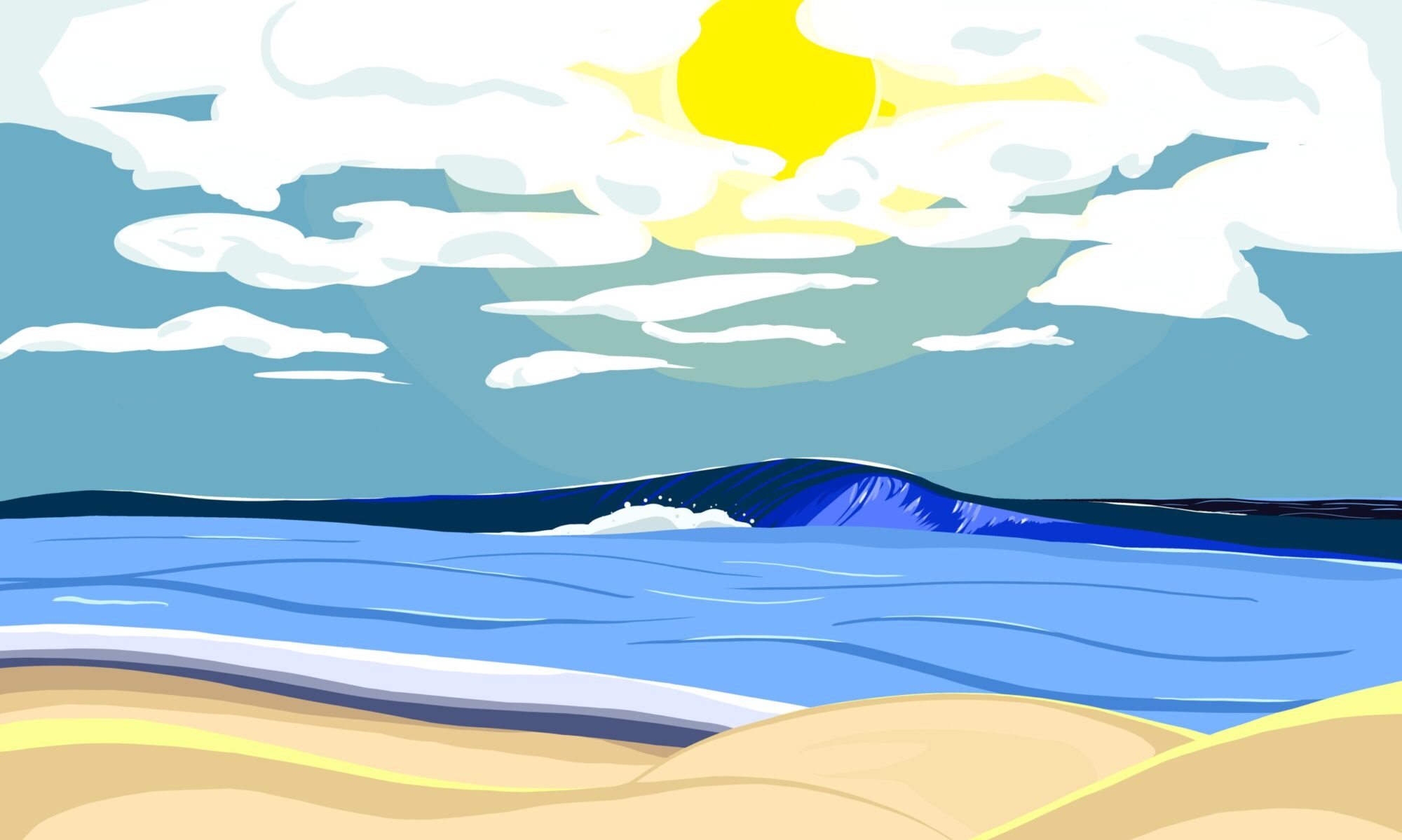Being clean vs. being disorganized. The world seeks entropy, so if you have everything in perfect order, I see that you have either already made it to a successful point or you are boring. Maybe you are both. I now take pride in my surroundings having a touch of chaos. Do not confuse chaos with disorganization. I am both obsessive and random. I know where everything is, but my room is not sterile. Ideally, I believe that there is a time and place for both perfect uniformity and organized chaos—a yen and yang of sorts. I see my environment as a symbol of my future success because it represents how my mind works. My mind is not limited to the conventional, the standard expectation, or the linear. In the future, when I have multiple rooms that I can call mine, I will have a sterile, “perfect” bedroom, but there is something nice about having a busy office space. Maybe the garbage makes my room feel less empty and lonely—it is inspiring. Intrusive but representative of the work that is done here.
Recently, I have been conflicted by the idea of going to the gym every day and just going when I feel like it. If I make it an “everyday” habit, I will be more consistent, but that also means I will go on days that I probably should not. If I force it, I will no longer do it for the sake of doing it, but I can then reap the benefits. I take a genuine pleasure in my time at the gym. I almost feel guilty sometimes for prioritizing it over other tasks. It is an everyday habit, and I fear that it will morph into something I do because “I should do it,” not because it is what is best for me. What is the middle ground?
Setting a schedule ensures that certain tasks will be prioritized. Like being vegan, making commitments removes entropy, removing randomness, but routine is also restrictive. It is not without sacrifice. I guess we must always choose between x and y. We must choose the sacrifice.
I am listening to “The Psychology of Money” by Morgan Housel. Chapter 2, “Luck and Risk,” very much capture where I feel like I am right now. I am taking a substantial risk by applying to competing schools, but risk is a probability. The more risks taken, the more chances there are for opportunities. I learned in my “introduction to engineering course” in high school (about 6 years ago) that landing heads does not make the probability of landing tails any greater on the next flip, yet what are the chances of only getting 400 tails out of 1000 flips? Statistically, it’s almost an impossibility. I’ll have to do the math later. Using this logic, if I can maintain my output, I am likely to eventually hit green. 4/10 is likely. 400/1000 is almost impossible—just keep flipping!
Here is a fun calculator to play around with: https://www.omnicalculator.com/statistics/coin-flip-probability
With this calculator, any combination of 462 or fewer heads in a thousand flips is already less than a percent, and it goes down exponentially. Probability is fun.
One of the most fascinating real-world examples of entropy is happening right now. We are now experiencing possibly the greatest population that this earth will ever inhabit. We spiked our growth, and now, as a result of many factors working in combination, it will regress. In my arbitrary prediction, within the next century, AI and robots will assume the role of at least 70% of the jobs currently being occupied by humans. This is not a bold statement, in my opinion. I think I am actually being conservative. Because of this increase in automation, the economy will maintain its required work regardless. As usual, it will take a couple of generations for the new technology to be normalized, but the technology exists now, so we do not have very long. The work is not my personal concern. My concern is that I do not believe that our economy can grow if we, as a species, are not. What happens to the economy when the work is done by something that is not being paid for? Maybe we could reference times of great slavery, but in those times, there was also great population growth and new demand. This is going to be at least a little different.
I am also interested to see how the monopolies that already exist will transition into this unknown landscape for capitalism. We are reaching a point where humans do not need to do work for our needs to be met. When we no longer require workers in factories, servers in restaurants, and administration in offices, who will receive the rewards? Companies? Taxes will require a new meaning, but that is communism… Will the average man be given a “capitalism stipend,” only required to work if he desires more than minimum wage living? Our economy (in the U.S. and globally) is going to experience something new before the 22nd century. It is nearly impossible to predict the next decade, let alone the next century, but we will soon be facing some serious economic and political hardship if we continue blindly. What I fear is that we have already crossed over the “this works” line for capitalism. Think for a moment: We already have technology that allows us to do 10 times the amount of work for the same human effort as it did 200 years ago. This number is made up, but it is the idea that is important. Where does all of this profit from efficiency go? I guess the question now is, “Is the average person working as much as people did 200 years ago?” If the answer is yes, I would say that the cause is the profits absorbed by the top 1%. At what point do we realize that this multiplier can only go so far until the system collapses? It has been a fun 200 years, but the wealth distribution will only continue to diverge until only the top 1% remain. The population is already beginning to decrease, and soon (within the next century), robots and AI will replace the need for humans at all. Natural selection, maybe? Is this a pill that you are willing to swallow? The End of Work Dilemma: What do we do in a capitalist system when the efficiency of automation gets so high that humans are no longer ideal for physical or knowledge work? Human crafts might always have some novelty. Right now, in our superficial world, handmade still means something. I will leave this idea here for now.
I have been thinking about how much control I really have over my decisions. I have realized that there are a few internal incidents that would derail me. If free will exists, there are still only a handful of reasonable choices that I have. Going back to probability, technically, a coin can land on its side, but this is so unlikely to happen that we decided to ignore it. I am bound by my beliefs, the experiences of my past, and the goals of my future. Because of these, there are only a few options that my mind will allow me to choose from. Maybe less logical, less stable, desperate people might have more rash decisions, but I have worked for some stability in my decisions—I have worked to resist entropy. I think rationality is fundamental to the survival of animals—we require some kind of stimulus or motive to act in a particular way. Because of this, I do not believe that free will could ever fully exist because, while the options might theoretically exist, only a few will ever be chosen. Going off on a tangent, I only believe that free will might exist because of a possible quantum irregularity (I do not know what I am talking about, but I know if there is no irregularity, every event would be calculable, therefore predetermined). Going back to the “realistic will,” it might be broken down into percentages. Something like the Earth’s atmosphere composition: 70% likelyhood to choose A, 20% B, and 10% for all the infinite options that remain. Yes, you could go and buy five watermelons tomorrow, but you are unlikely to do that above something else because the incentives are low. This is my idea of probabilistic or realistic free will. This fits the theme this week because I believe, like the universe, people tend towards the path of least resistance. This idea rules out free will, but it might be supportive of determinism.
Finally, related to the idea above, I wanted to talk about the scariness of entropy in my own life. Complacency leads to entropy in my own life. I have realized that there are few things that will lead me astray in one day, but not maintaining my routines and carelessly allowing them to fall off one by one might lead me backwards. It is so much easier to maintain a habit than to restart a new one, but we also must adapt our habits to grow and meet our needs at some point, no? How fast can the human mind really adapt? I think I am still adapting to information I gained months ago, at least. Can adaptation be forced? Does stress inspire adaptation or inhibit it?
I had an “additionally” section, but it is already time to go to sleep. I will save that for next week.
It has been Tristan. It always will be Tristan. Bye!


